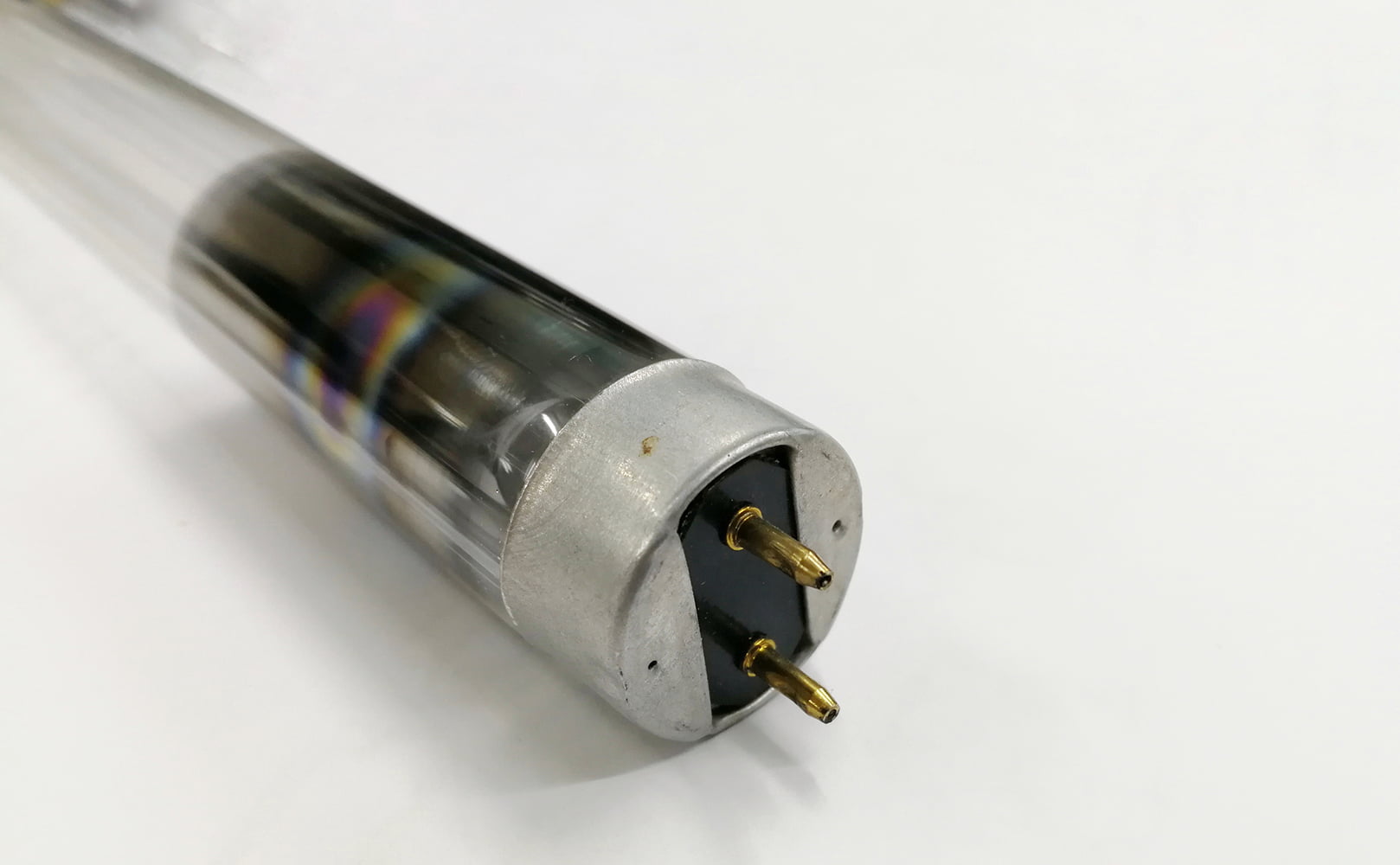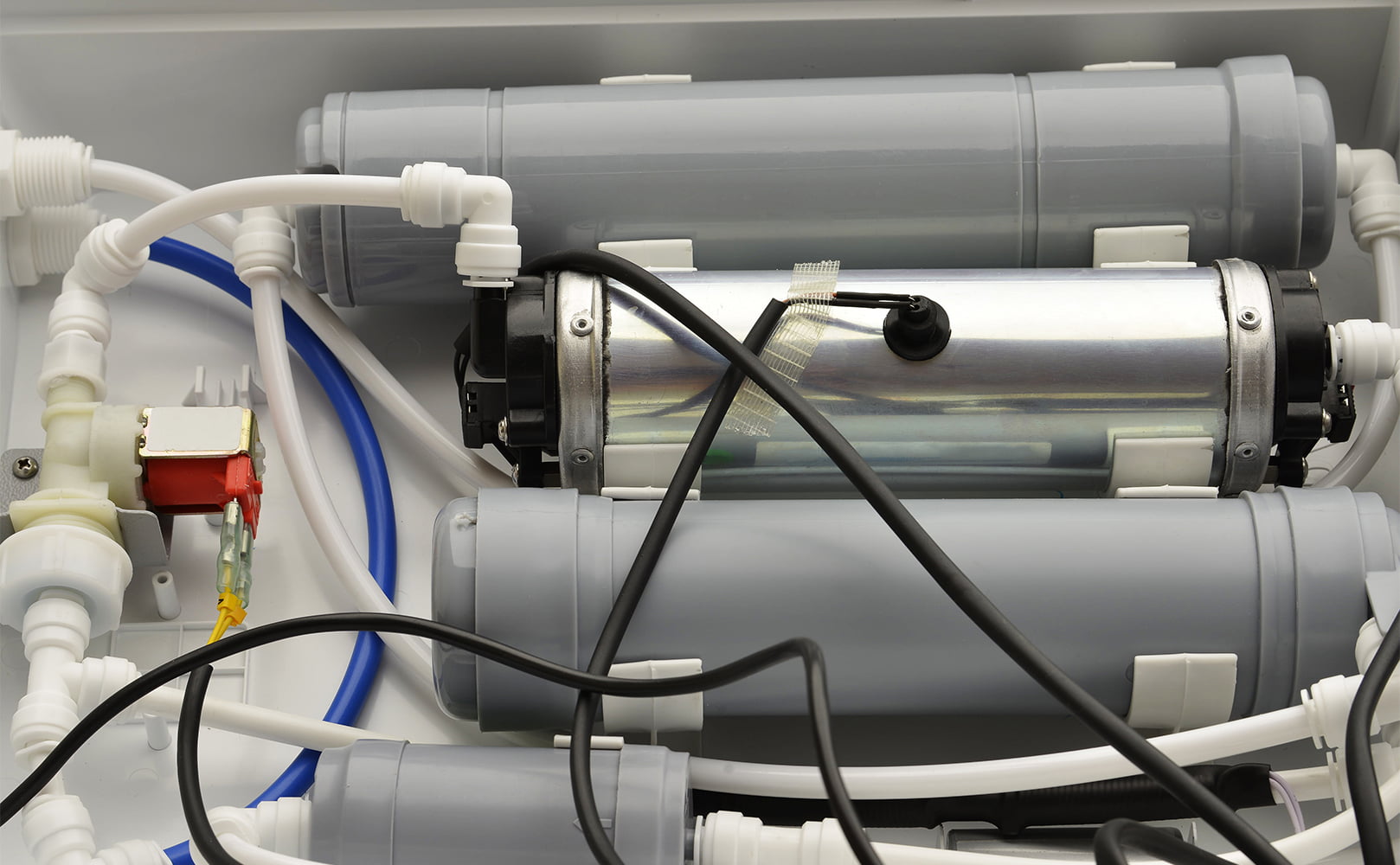UV Water Filter Bulb Life – How Long Do UV Lights Last?
Written by: Gene Fitzgerald // Last Updated: Jan 4, 2023
This page may contain affiliate links. If you buy a product or service through such a link we earn a commission at no extra cost to you. Learn more.
UV light bulbs are known for their durability. They can go for a long time before they become too weak and require replacement.
But what does that mean exactly? How long does a UV lamp last?
Let’s find out!
Key Takeaways
- Most UV bulbs designed for home UV water purifiers are rated to last for about 9,000 hours.
- With continuous use, you would typically need to replace your UV light bulb once a year.
How Long Do UV Bulbs Last?
UV light bulbs are very durable and can go for a long time before they lose a significant portion of their power. It’s important to understand that UV light bulbs often don’t actually burn out in the same sense as regular bulbs. Rather, the bulb’s intensity diminishes over time.
Most UV bulbs designed for use in household water purification systems are rated for about 9,000 hours. This comes out to just over one year of continuous use. After 9,000 hours, the typical UV light bulb will have lost around 40% of its intensity. While it will still work, its effectiveness at killing bacteria and other pathogens will be severely reduced. That’s usually the point when the bulb needs to be swapped out.
Do UV Bulbs Have a Shelf Life?
You can safely store unopened UV light bulbs for as long as you want, as long as you keep them in a dry, cool place, away from direct sunlight. UV light bulbs have a practically unlimited shelf life under proper storage conditions and their effectiveness will not degrade until you’ve started using them.
This means that it’s always a good idea to stock up on replacement bulbs if you see a good offer. Take advantage of any temporary discounts you see on the market and buy a few bulbs to keep in storage. Just make sure that you have a good place to keep them until you actually need them.
How Often and Why to Replace UV Lamps
As mentioned above, most UV lamps used in water purification systems should be replaced every year for the best results. You can still keep using your bulb after that point, but keep in mind that its effectiveness will be severely reduced and you won’t get its full purification benefits anymore.
If you also neglect to maintain your purification system in other ways – such as not cleaning the quartz glass sleeve – this will further reduce the effectiveness.
What If My UV Lamp Hasn’t Burned Out Yet?
UV lamps don’t burn out. They just get dimmer over time, losing about 40% of their intensity after 9,000 hours of continuous use. That might not seem like much, but reducing the purification effectiveness of your filtration system by nearly half is actually significant.
With that in mind, don’t wait for your UV lamp to burn out before deciding to replace it. That’s never going to happen. Familiarize yourself with the guidelines provided by your purification system manufacturer and make sure to observe the recommended replacement periods.
Where to Get Replacement Lamps
You can easily find replacement UV light bulbs on the open market, including general online retailers like Amazon. Check your local water treatment stores as they might have better deals on a larger variety of products.
Some purification systems should only be used with manufacturer-approved replacement bulbs. These may be more expensive or difficult to find, so make sure you know exactly what type of bulb your system requires. Try to find out where you can shop for replacement bulbs for it in advance.
Sometimes, your only option would be to contact your purification system’s manufacturer directly. In this case, it’s usually not a bad idea to buy in bulk to avoid any significant shipping and processing costs.
How to Replace Your UV Light Bulb
Before replacing your UV light bulb, make sure the system is completely turned off. This includes power and water supply. Then drain any remaining water in the line by opening nearby outlets.
Check your instruction manual to ensure that there aren’t any other steps you need to take before it’s safe to open the chamber. Finally, let the system cool down before opening it.
Always wear gloves when replacing a UV light bulb! Any fat residue from your fingers can cause permanent damage to the new bulb once it’s turned on. You also don’t want to touch the old bulb with bare hands in case it’s still warm.
Remove the safety cap of your system and take out the whole lamp assembly. This will allow you to remove the UV lamp from its controller. Once you’ve unscrewed the old UV lamp, put it away carefully, making sure not to scratch or break it. You will want to dispose of your old lamp safely, so don’t make that more difficult than it needs to be.
Before screwing in your new UV lamp, it’s a good idea to clean the quartz glass sleeve. It usually gets dimmer over time as it accumulates grime from the water, which in result decreases the effectiveness of the UV light bulb. You should keep your quartz sleeve as clean as possible at all times, and should ideally clean it as often as you replace the bulb.
Now you’re ready to screw in the new UV lamp. You may have to replace the O-rings too, depending on how worn out they are. Some manufacturers recommend replacing O-rings every time you’re swapping out the UV light bulb, regardless of how they look.
How to Maintain the Other Parts of Your UV System
Keeping your UV purification system in a good condition requires you to pay attention to other parts of it as well. Other than replacing the UV light bulb, you should also regularly clean the quartz sleeve, look out for leaks around the reactor chamber, and ensure that the controller unit is always working properly.
Depending on the specific purification system you’re using, you might also have to regularly change the pre-filters. This is important for ensuring the proper operation of your UV purification system. If you’re using a separate pre-filtration step that’s not a part of the UV purification system itself, you may easily forget to replace filters if you’re too focused on the UV purifier’s maintenance. Always remember to maintain other parts of your purification setup as well.
Quartz Sleeve
Your UV light bulb is encased in a quartz glass sleeve that provides insulation from the surrounding water while still allowing light to pass through. This sleeve will pick up grime from the water over time, leading to the build-up of a plaque that progressively makes the sleeve less and less transparent.
As a result, it starts to let less light through, which diminishes the effectiveness of the entire purification system. To prevent that, you have to regularly clean the quartz sleeve to ensure that it stays as transparent as possible.
Why Do UV Systems Have Quartz Sleeves?
The purpose of the quartz glass sleeve is to provide an insulating barrier between the UV light bulb and surrounding water, while still allowing light to pass through. Quartz is used instead of regular glass because it works better for allowing UV light through. It also doesn’t suffer from solarization as much when continuously exposed to UV light, unlike regular glass which will get dimmer over time.
How (Often) to Clean and Replace
Your quartz sleeve should be cleaned at least once every 12 months. Ideally, you should do this more frequently if your schedule allows for it. The cleaner you keep your quartz sleeve, the more effective your UV water purifier will be.
Keep in mind that at some point, cleaning won’t do much anymore. Once your sleeve has been used for a long time, it will build up a permanent layer of plaque which will be impossible to clean. At this point, the only option is to replace the sleeve altogether. This should be done at least every two years for the best results.
Reactor Chamber
The reactor chamber of your UV water purifier shouldn’t need much attention over time, as it’s designed to require very little maintenance. You should actually avoid messing with it too much as you might damage it in unexpected ways if you’re not careful. As long as there aren’t any leaks and the chamber is physically intact, there shouldn’t be any need for additional maintenance.
Controller Unit
The controller unit is an important part of your UV water purification system and should be inspected regularly to ensure it’s functioning correctly. As long as the UV light bulb itself is working properly, this indicates that the controller unit is also in order. If something goes wrong with that part of your UV purification system, you will usually have to replace the controller unit completely.
It might be possible to get it repaired by a professional, but depending on what exactly is wrong with the controller unit, it’s often cheaper and more efficient to just replace the entire thing.
Changing Pre-Filters
Most UV water purification systems rely on a pre-filtration step to improve their effectiveness. This step removes particles from the water, ensuring that there’s nothing to obstruct the UV light from passing through. If the pre-filters aren’t replaced frequently enough, your water will not only contain more contaminants, but it will also not get purified correctly by the UV light.
Can I Turn My UV System Off When Not in Use?
You should keep your UV purification system turned on at all times. Turning it off occasionally is not a problem by itself, but it can lead to other issues. For example, you may forget to turn the system back on and end up drinking contaminated water for some time until you realize your mistake.
You might also have to wait for some time before you have access to drinking water after turning the system back on. In the meantime, you’ll be left with nothing to drink.
If you have any questions about how long UV light bulbs last please don’t hesitate to leave a comment below!
Information provided on BOS is for educational purposes only. The products and services we review may not be right for your individual circumstances.
We adhere to strict editorial guidelines. Rest assured, the opinions expressed have not been provided, reviewed, or otherwise endorsed by our partners – they are unbiased, independent, and the author’s alone. Our licensed experts fact-check all content for accuracy. It is accurate as of the date posted and to the best of our knowledge.



